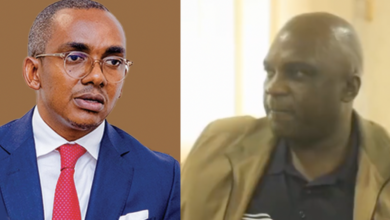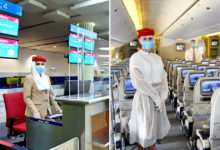Africa major dump of fake medicine
Interpol President Jackie Selebi has said people driven by profit making have turned Africa into a potential market for their fake pharmaceutical products.
By Adam Ihucha, Arusha
Interpol President Jackie Selebi has said people driven by profit making have turned Africa into a potential market for their fake pharmaceutical products.
Speaking here over the weekend, the Interpol chief said that the threat of a thriving multimillion-dollar illegal trade in counterfeit drugs, vaccines and other medical products in the African continent was more real now than ever.
Selebi said: “Counterfeiting is a worldwide problem. No continent is immune from the threat of imitation drugs.
But Africa is getting the lion`s share.“
He added: “We must fight against the deadly trade in fake drugs, which kill thousands of people in our continent every year.“
Selebi, who was speaking during the Interpol African Regional Conference, said law enforcers must forge international cooperation if they are to win the war against transnational drug counterfeit crime.
He said Africans should be more aware of the growing market in counterfeit medicines and the public health risks associated with the illegal practice.
Available literature indicates that WHO has been fighting drug counterfeiting for 20 years ever since it became a major threat in 1980.
Dr. Valerio Reggi from WHO`s Health Technology and Pharmaceuticals cluster of departments was last year quoted as saying that the problem was first noticed by the pharmaceutical industry.
“They noticed their own products being copied,“ said Dr. Reggi, who has been working on drug regulation at WHO since 1989.
It is estimated that one in four packets of medicine sold in street markets in developing countries could be fake.
Meanwhile, insufficient data currently exists on how often counterfeit drugs are sold on the African continent.
It is difficulty to establish the precise figures on the counterfeit trade globally.
However, a report published in the journal PLoS Medicine in April 2005 indicates that the Food and Drug Administration in the United States of America estimates that the worldwide sales of fake drugs exceed US$ 3.5 billion per year.
The Center for Medicines in the Public Interest in the USA predicts that counterfeit drug sales could reach US$ 75 billion globally in 2010 if action is not taken to curb the deadly trade.
Counterfeit drugs are found everywhere, but sub-Saharan Africa is particularly affected. “The dismantling of the health-care system in most African countries has created the vacuum into which counterfeiters have been able to slip,“ Dr. Reggi is on record as saying.
In Africa, drugs are sold through the informal economy in large open-air markets alongside fruit and vegetables. “People may realize the risk that they take, but there�s no other place to buy drugs,“ he said.
“Hospitals can`t buy directly from the pharmaceutical companies for many reasons, including cost and the small quantities they need. So they buy drugs from local suppliers, who sometimes are not even licensed by the local authorities.
Some of these people may be selling fake drugs, either knowingly or unknowingly,“ he stressed.
According to WHO, drugs commonly counterfeited include antibiotics, anti malaria`s, hormones and steroids. Increasingly, anticancer and antiviral drugs are also faked.
Health personnel say that counterfeiters take inert ingredients such as chalk, and even dangerous chemicals, package them convincingly and sell them to consumers. Such drugs may have no therapeutic effect and can be toxic.
In common with illegal narcotics, fake drugs are trafficked across borders, hidden in items such as teddy bears, or labelled as animal feed.
Having escaped detection by customs authorities, the drugs are repackaged in the destination country.
A number of studies have documented the impact of counterfeit drugs on patients` health, especially the way they undermine health systems. Dr. Reggi cited the case of a counterfeit iron preparation that has killed pregnant women in Argentina in the last three years.
Hundreds of children in Bangladesh suffered kidney failure and many died due to fake paracetamol syrup diluted with diethylene glycol.
The 19th Interpol African Conference brought together Senior law enforcement officials throughout the African region in the northern Tanzania�s safari capital of Arusha.
Source: Guardian





